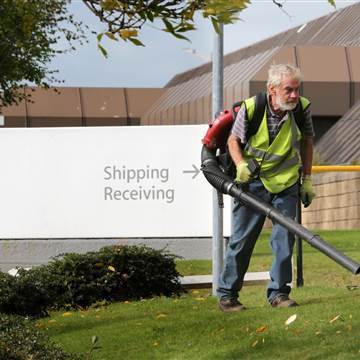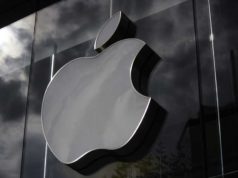Apple faces a record-setting tax bill of up to $14.5 billion after the European Union ruled Ireland had given it illegal tax benefits.
A three-year investigation by the E.U.’s executive branch ruled that Ireland’s tax dealings with the California tech giant breached rules on state aid and that Dublin must recover the unpaid taxes, plus interest.
However, the exact amount could be reduced by agreement or if Apple agreed to pay more tax to other countries.
Apple and the Irish government both said they would appeal the decision.
The ruling is likely to anger Washington, which has accused Brussels of campaigning against U.S. corporate success stories.


The case centers on deals that encouraged the U.S. tech giant to route vast profits through Ireland, even though EU state aid laws bar governments giving some firms unfair advantages.
The European Commission — the E.U.’s executive arm — first accused Ireland in 2014 of dodging international tax rules by letting Apple shelter profits worth tens of billions of dollars from tax collectors in return for maintaining jobs.
It found the multinational’s effective corporate tax rate on its European profits dropped from 1 percent in 2003 to a mere 0.0005 percent in 2014. For each $1.12 million in profits, Apple paid just $55 in tax.
“Ireland must now recover the unpaid taxes in Ireland from Apple for the years 2003 to 2014 of up to €13 billion [$14.5 billion] plus interest,” the Commission announced Tuesday.
It said Apple had also avoided tax on its profits across the E.U. by recording all sales in Ireland rather than in the country where the devices were actually sold. If Apple agreed to repay tax to the other countries, “this would reduce the amount to be recovered by Ireland,” it said.
Commissioner Margrethe Vestager told a news conference in Brussels Tuesday that there was “no justification” for the tax deal.
She added: “This is not a penalty, it is unpaid tax.”
Apple employs 5,500 workers, or about a quarter of its European-based staff in the Irish city of Cork, where it is the largest private-sector employer. It has said it paid Ireland’s 12.5 percent rate on all the income that it generates in the country.
Ireland’s low corporate tax rate has been a cornerstone of economic policy for 20 years, drawing investors from major multinational companies whose staff account for almost one in 10 workers in Ireland.
Ireland’s finance minister, Michael Noonan, said: “I disagree profoundly with the Commission’s decision. The decision leaves me with no choice but to seek cabinet approval to appeal the decision.”
He said it was “important that we send a strong message that Ireland remains an attractive and stable location of choice for long-term substantive investment.”
Apple did not respond to requests for comment but posted a message from CEO Tim Cook on some of its European sites saying the ruling was “unprecedented and it has serious, wide-reaching implications.”
“It is effectively proposing to replace Irish tax laws with a view of what the Commission thinks the law should have been,” the message said. “This would strike a devastating blow to the sovereignty of E.U. member states over their own tax matters, and to the principle of certainty of law in Europe.”
It said Apple would appeal the ruling, adding: “We are confident that the Commission’s order will be reversed.”
Nick Bryer, a spokesman for aid group Oxfam,said: “It is clear that, without tough co-ordinated action, big companies can continue dodging their tax bills around the world, robbing [states] of money that could be spent fighting poverty.”







